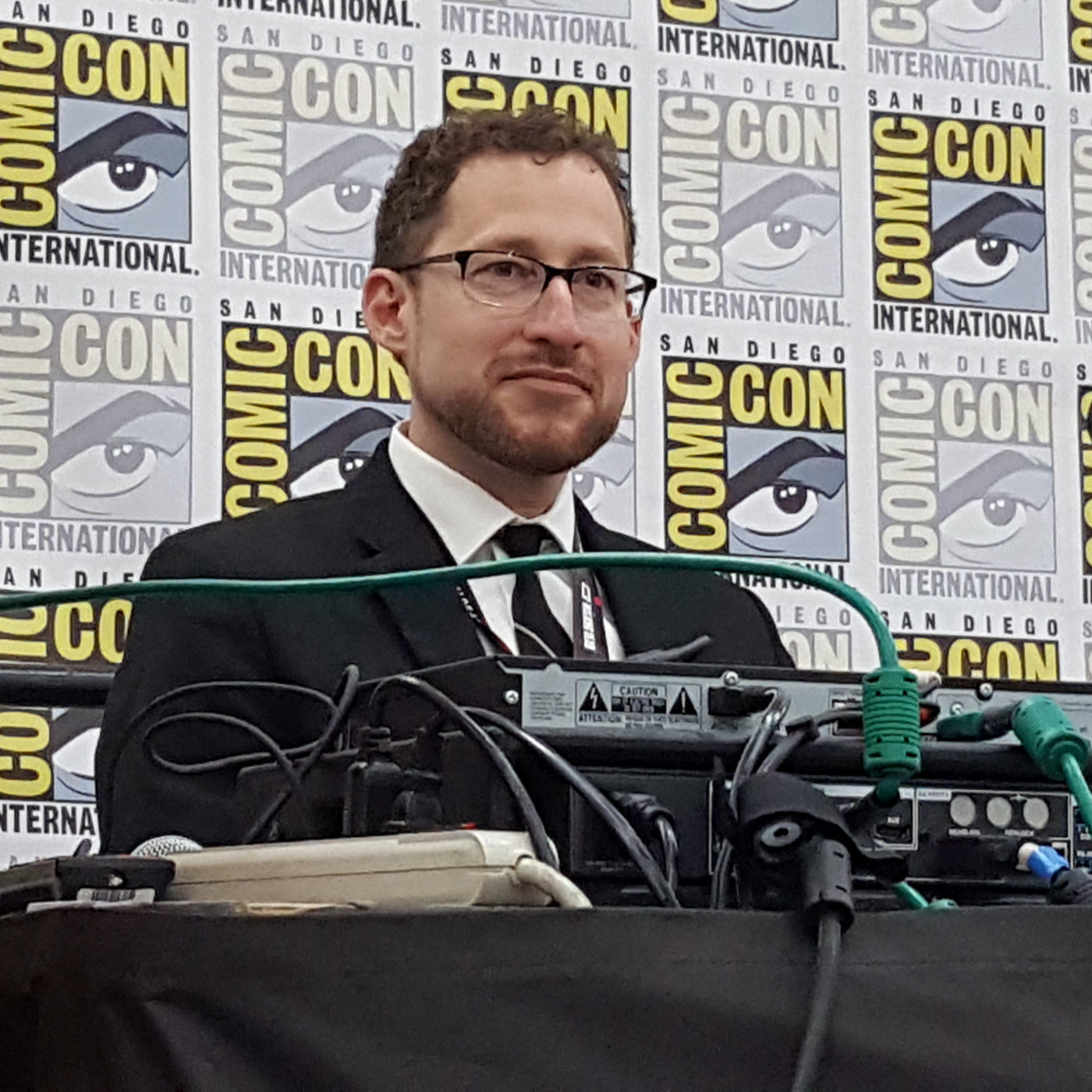

Home Insurance
By Gideon Marcus
Carlsbad, California, with its palm trees, white sand, and Victorian/Wilhelmian architecture, was too nice a place to live. After the housing boom in the early 21st century, only those who were very rich or who had managed to secure their homes prior to the sudden inflation of prices could afford to live there. For these precious few, the seaside community remained a bubble of security while the world went to hell around it.
Every year, factories, “clean” coal plants, oil-powered cars, and billions of cattle continued to belch millennia’s worth of biological byproducts in gaseous form into the atmosphere. The air remained roughly the same color to the naked eye, but became increasingly opaque to infrared, and the Earth stirred uneasily, warming under its invisible blanket.
They didn’t notice this in Carlsbad, blessed as it was with a perfect Mediterranean climate. While temperatures soared around the world, turning places like Yanbu, Saudi Arabia and Phoenix, Arizona into uninhabitable furnaces, the residents of Carlsbad smiled at how mild the winters had gotten. Category 6 hurricanes pummeled the Gulf Coast. Typhoons hit Okinawa with increasing frequency and fervor. The weather of the United Kingdom (of late, comprising just England, Wight, and Jersey) became even worse. In Carlsbad, its citizens delighted at the occasional claps of winter thunder that greeted their ears.
Even the flooding from the melting of the polar ice caps went hardly noticed in the southern Californian town. Sure, the disappearances of Nauru, Tuvalu, the Maldives, and Bangladesh made for interesting news and poignant memes, but the sharply sloped Pacific coast meant that rising seas devoured very few homes in Carlsbad, and those that lived on the eastern side of sea-straddling Highway 101 smugly exulted in now owning beachfront property.
If there was a snake in the Garden, it was unemployment. To be sure, doomsayers had predicted mass joblessness since the first automatic sock-maker was commissioned in the 18th century, but this time, at last, it was real. Cars were self-driving. Restaurants were roboticized. Assembly lines were machine-run (and assembled).
For most Carlsbadians, the lack of employment was no inconvenience; old money and high property values kept them afloat. And in turn, they kept their fellow, poorer citizens afloat. Not through charity, of course, but because there was always more prestige in human servants, nannies, shoppers, accountants, attorneys, etc.
Then came the Big One of 2107.
Though the famous San Andreas fault runs right through the middle of California, geologists had always thought San Diego County to be a stable island of crust, non-aligned in the never-ending cold war between the Pacific and Cuzco continental plates. They were wrong.
The massive quake battered Carlsbad and its neighboring, formerly idyllic, communities of Encinitas and Oceanside, disintegrating whole subdivisions of squarish beige McMansions. Hills sank into the sea, which now extended fingers as far inland as the local Palomar Airport. Annual floods ravaged the lowered lands. Weather patterns shifted: warm summers became intolerably muggy. Torrential winter rains dug deep gullies into the hillsides. Fierce Santa Ana winds whipped autumn fires into infernos that licked at the edges of the city every few years despite valiant efforts to stop them.
The bubble was burst. Carlsbad was part of the rest of the world now.
💸
Tala looked over her insurance statement once more, trying to make the numbers add up to be enough, and knowing she was still short.
Flood insurance: $2150.17
Fire insurance: $1912.75
Earthquake insurance: $1544.34
Allergy insurance: $1459.10
Unemployment insurance: $740
Insurance insurance: $794.69
It was almost enough for her and her mother to live on, but not quite. Not in Carlsbad, even with the now-reduced property values. There was one thin reed of hope. She thumbed through her handie to see if any of the job opportunities had panned out. A frown darkened the lines in her face. Rejected for the Globe-mart Assistant Manager job (not enough experience). Rejected for the retail position at the one remaining upscale shopping center (too old). Rejected for the county administration position (lack of connections). No nanny positions. No maid positions. No cook positions. The affluent of Carlsbad had fled in droves, their Eden corrupted, leaving behind those whose only asset was their home, a home of severely depreciated value.
Tala set down her handie and once again considered striking out as an entrepreneur. Once, she’d planned to be an Essential Ointments marketer. There was that guy she’d met at the job center who offered to give her a bunch of stock cheap. All Tala needed to do was get three people who wanted to sell for her, and she’d be set. But when she’d finally messaged her contact to let him know she was interested, Tala had gotten a response from his parole officer saying he was no longer allowed to participate in such practices. Something about pyramids and MLMs, whatever those were.
Then there was the Swap, trading little artistic creations and collectibles for cash or goods that could be delivered by drone across the world. She wasn’t very good with her hands, though, and she didn’t even know where to begin finding antiques to barter. How about writing? No, that certainly didn’t pay enough to live on.
She looked at the statement again and sighed. The only good thing about being unemployed was that insurance money went into her bank account rather than being deducted out. Once more she totaled up the numbers on the handie’s sheet-sized projection. Not enough for here, but maybe…God, she hated to consider it…maybe it was just time to leave Carlsbad. There were plenty of places in the country where her insurance payouts would cover basic expenses. And whatever she lost in earthquake coverage by moving to, say, Oklahoma, would be more than made up for in federal tornado insurance. One place was as good as any other, right?
As if in answer, a warm breeze blew through the screen in the front door, tinkling the little wind chimes hanging from the frame. Tala turned, the smooth hardwood floor creaking softly under her bare feet. She surveyed her living room, starkly shadowed by the setting sun, and appreciated it as if it were new. The big sofa, the vintage IKEA dining table and chair set, the checker-box tapestry quilted by her mother’s grandmother. Through the bay window, the ocean was a shimmering plain between the (remaining) apartment towers to the west. Birdsong and cicada chirp were the melody above the omnipresent bass rumble of traffic along the new Interstate Five.
She shook her head. How could she consider leaving Carlsbad? Maybe it wasn’t quite the paradise Tala had known as a little girl, but it was still the only home she’d ever known. Besides, her mother would absolutely refuse to leave, especially with papa’s ashes buried in the backyard. There was nothing for it. She was just going to have to find a way to make it work.
💸
Tala converted her seat into a couch, giving complete trust to her driverless electric car. The vehicle sped in regimented formation with the other autos on the freeway. The commute to the Regional Employment Center in Orange County took about an hour. A century earlier, the trip length had varied wildly: a single inattentive or road-raging driver could snarl up traffic for hours. Such things were long forgotten now.
Tala considered taking a nap, but she was too nervous about today’s interview. It was make-it or break-it time: either she qualified for some line of needed work, or she lost her unemployed status and the insurance that went with it. Sure, UI contributed the least of her income these days, but every cent mattered. Moreover, if her record showed a lack of qualification, that further reduced her chances of ever finding work in California. She stared wistfully at the dazzling ocean, deep deep blue, hemmed in between bright cerulean and vibrant green. Along the coast, slender windmills chopped the air, and beyond, Tala could see the squat silver of the tidal energy generators. It was all achingly beautiful.
“Handie, put on GNN,” she called out.
A cacophony of voices filled the car’s interior before the handie dulled them to a more tolerable level. It was a talking-heads roundtable, rather unusual for the Global News Network, which had long ago filled most of their program slots with live gossip paparazzi shows. Actual, informative news had died in darkness, circa 2063.
The man on the right had his arms folded, suit crumpled in dignified disdain. “What about Basic Income?” he said, the sneer implied if not sounded.
“It’s clearly an idea whose time came a long time ago.” The woman on the left had her hair in tight curls, and she wore bright blue. “We are never going to get below 15 percent unemployment, and we must address the rampant poverty in this nation.” Her deep voice spoke with compelling cadence.
The host, of indeterminate age and gender, dressed in gray, swiveled their head again. “What do you say to that, Bob?”
He waved his gleamingly manicured hands. “What the Congresswoman is talking about is Socialism. I don’t think there’s anyone in this great nation of ours that wants to go down the same road as hellholes like Venezuela, Nazi Germany, or Denmark.”
His opponent leaned forward. “The current system is hopelessly broken and corrupt,” she said. “The American people never get enough help, and at that, only when their situation is beyond intolerable. And if handing over half the budget to private insurance companies isn’t socialist redistribution, what is?”
“Hah,” the man barked. “What we have in America is market-based liberty. No one’s starving, right?” He seemed to wink directly at Tala, and her skin felt crawly. “Everyone works to the best of their ability, and insurance makes sure their needs are taken care of. It’s the opposite of socialism.”
Tala couldn’t take any more. “Handie, turn it off!” she shouted. The three figures faded from view leaving just the slate of the asphalt and the dark shimmer of photovoltaics gliding past the vehicle; but she did not see these, for her eyes were shut tight. When she opened them, her vision was blurred with tears. She blinked them away, then noted that her palms hurt. They’d been clenched, too, and there were four pink impressions in the flesh.
Tala just had to qualify for a career. She didn’t know what she’d do otherwise.
💸
The Orange County REC was a sprawling complex. It had long outgrown the big brown central building, and “temporary” trailers were sited in concentric masses. Tala’s car stopped on the roof of the REC’s parking structure, and its door slid open, dry air gusting in to hit her like a sheet of sandpaper. She sneezed and hastened to the elevator.
It wasn’t much better at ground level. The strong Santa Anas blew dust along the way and slapped at the cuffs of her slacks. Tala squinted at her handie once more, looking for her destination. Office 25B, Building 17. A warm voice in her ear directed her through the labyrinth of portable buildings, their stained foundations and faded paint betraying decades of use. Off in the distance, she saw the four mountains of Disneyland. She paused for a moment, wistful in childhood memories. Then she shook her head. If she couldn’t afford to live in Carlsbad, she certainly couldn’t afford the luxury apartments of the Magic Kingdom. Anyway, her cousins hadn’t lived there for a long time.
Building 17 was one of the REC’s permanent structures, a squat building whose wide windows stared blankly at Tala. She brushed past the long line of people without appointments and through the sliding doors into the lobby. The over-cooled air pummeled her almost as badly as the Santa Anas had outside, and with no more moisture in it. Tala rubbed away the goose pimples.
There were several flat displays in prominent locations, each with something different on them—some kind of sports game, a kids’ show, a news channel—despite the fact that everyone had carried their own visual entertainment in their pockets for decades now. The news screen caught Tala’s eye, lurid shots of a building afire. The chyron scrolled: DOMESTIC TERRORISM IN CHICAGO, THIRD U.S. INCIDENT THIS WEEK. She squinted, trying to make out the target, and let out a little “ah” when she spotted the letters on the side spelling out “Nestle Water Facility.” It seemed self-defeating to blow up a public utility, but more and more were being targeted every day. Nobody seemed to be doing much about it, either.
Tala shook her head and walked up to the reception desk.
“Welcome to the Regional Employment Center. Can I help you?” the man behind the counter asked brightly. He was young and clean-cut, his beard a tasteful shade of purple. Beside him, two other staffers in red social service uniforms smiled engagingly. Tala eyed them with envy. The government was one of the few places that still employed human beings in service positions.
“I’ve got an appointment for 10:15,” she answered. “Tala Santos?”
The receptionist’s eyes unfocused slightly, and then he smiled brightly. “Of course. Just down that way.” He extended a pudgy, crimson-sleeved arm to his left.
“Office” 25B turned out to be a double-size cubicle, its walls only three feet high, in the back of the big common space. A gold placard at its doorless entrance read “Bradley Silac.” Tala walked in, and the old, rather shapeless woman behind the black plastic desk bade her with a wave to sit down.
“You’re Julie Navarro?” Silac asked, her brown eyes not focused on Tala. “No, my 10:15. Tala Santos.” Her gaze returned to Tala. “Professional
assessment, right?”
Tala licked dry lips. “That’s right.”
Silac leaned back in her chair, which creaked under the weight. Seeming to look at nothing in particular, she continued. “Your file says you got your degree thirty years ago. English.” Silac grunted the word as if it tasted bad. “Right?”
“Yes, but I just completed a virtual course and got a credential,” Tala said quickly. She held up her handie, the certificate glowing above the device. Silac leaned in for a view, peering myopically.
“Communications,” the administrator read.
“That’s right, ma’am, and Social Maneuvering.” Tala looked at Silac hopefully. Social Maneuvering was supposed to be the next big thing. After all, computers made lousy salespeople and lobbyists.
“I see.” The words had the snap of a door closing. Silac continued to review her certificate. “Between you and me, the time to get that credential was about ten years ago. The market’s glutted with communicators. Looks like most of your other professions are outmoded, too.” Looking up to see Tala’s crestfallen expression, the older woman’s stern features softened slightly. She cleared her throat. “Well, let’s see.” A pause as the administrator’s eyes unfocused. Tala caught a glint of what she was looking at—documents flashed directly to her pupils. “Says here you used to work as a paralegal.”
“Yes, I did!” Tala said.
“Not much call for that these days.”
“No…no, not lately.”
“Personally,” the administrator said conspiratorially, “I think that’s a mistake. Computers miss things.” She paused. “Well, this may be your lucky day.”
Tala blinked. “What is it?”
“Foreign companies are often more old-fashioned and like to staff humans in their legal administration. There are extranationals establishing their presence all along California coast: San Diego; San Luis Obispo; Bay Area, too, though that’s a bit of a commute.”
Who cared? Six hours round-trip on the fast-train every day, but it would be worth it, Tala thought. Besides, she could sleep on the way. Hope spread warm in her chest.
“I don’t see any record that you speak another language, though–”
“Oh, but I do!” Tala blurted. “I’m trilingual!”
Silac let slip the ghost of a smile. “Interesting. See? Computers don’t know everything. How’s your Mandarin?”
Tala’s mouth opened soundlessly.
“No? How about Arabic?”
Tala shook her head.
“Swahili?”
“N-no.”
“Hmm. I shouldn’t play guessing games. What languages do you speak?”
“I speak perfect Tagalog and Spanish, ma’am,” Tala said with all the confidence she could muster.
The ensuing pause stretched a fraction too long. In that second, Tala was utterly aware of every noise in the room: the drone of the air conditioning, a conversation in the next cubicle over, tinny music from someone’s handie.
“Oh,” Silac said.
The flash of hope became acid in Tala’s stomach.
“Lots of Spanish speakers looking for work, I’m afraid,” the administrator said at last.
Tala nodded.
“And the Filipinos are all speaking Mandarin these days.”
“Yes, ma’am,” Tala mumbled.
Silac leaned back heavily in her chair, the light of reflected documents flickering out in her eyes. “I’m afraid there’s nothing in your background to qualify you this round. You’ll have an opportunity to attempt requalification in 180 days.”
“But ma’am, if I couldn’t qualify now, how will I qualify then?”
The administrator looked at Tala blandly. “Take another course.” It sounded like a question.
“How can I survive until then without unemployment?”
Silac shrugged. “I don’t make the rules, Ms. Santos.”
Tala rose from her chair. “Couldn’t you extend the deadline? Even just a couple months. I’m sure I can find something.”
“I’m sorry.” Silac’s tone was final, if not insincere. She looked up from Tala. “Ah, that’s my 10:30. Good luck, Ms. Santos.”
💸
The ride back went by in a blur. Turmoil wracked her such that Tala was thoroughly unaware of her surroundings, of the cars moving in automated lock step beside her, of the offices and shopping centers giving way to sprawling tracts of homes. Her thoughts bounced between self-loathing and despair. What was the point of carrying on if she was of no use to anyone? Could she continue in any meaningful way if she had to uproot herself from Carlsbad? How could Tala face her mother with the news that her daughter was useless and that they were going to have to leave their home?
Only when the last edifices gave way to the verdant hills of Camp Pendleton, the Marine Corps preserve that still acted as a bulwark against Los Angeles’s southward creep, did she come to awareness. It was beautiful here, the vivid
green slopes descending into grassy coastal plain. And on the other side of the freeway, silvery breakers lapped against the shore. A military jet-copter flew overhead, rattling the car as it roared off to join a platoon of soldiers on
maneuvers in the distance.
At least they’re working, Tala thought bitterly. The military would be a welcome career, steady work and reasonable pay. And it wasn’t like soldiers were deployed abroad anymore, though civil unrest could be just as dangerous as foreign conflict. But Tala had long since missed that opportunity. She was too old and, if she were honest with herself, not in any kind of shape for it.
The car snaked around a bend and the twin domes of San Onofre came into sight, dingy but still impressive on the beach. Power lines had long since been disconnected from the defunct nuclear power plant, but the buildings remained, their radioactive cores yet stored within the seagull-splattered hemispheres. They would be for hundreds of years, or until some state finally authorized a central storage site for spent nuclear fuel. Tala scoffed ruefully. The power plant was like her, full of potential but useless, well past its prime…and just as unable to relocate.
The plant loomed to the right, and then was gone behind her. Tala was thirty minutes from home.
💸
Tala’s mother was waiting when she got home, rocking gently in the comfy chair in front of the window, still dressed in bedclothes. The old woman never watched a screen, preferring to read or do Sudoku with a full view of the town she loved.
“How did it go?” Tala’s mother asked.
Tala took of her suit jacket and put it carefully on one of the dining chairs before answering.
“Could’ve been better.”
“I’m sorry, sweetie. Come here.” She held out her arms without getting up, an offer of a hug. Tala hesitated, feeling guilty to take even that much, feeling every inch the failure. But her need for comfort was stronger, and she went to her mother’s embrace. The old woman still had strength in her plump arms, and she squeezed Tala tightly.
“Don’t worry. God provides. After all, he gave us this paradise to live in.”
Tala stifled a sniffle, blinking back tears. For her mother, Carlsbad was still paradise, even now. She disengaged, saying, “I’ll make us some tea, mama.”
“That sounds lovely.”
Paradise. Paradise. The word echoed dully in Tala’s mind as she went to the small but functional kitchen. Paradise. She opened the cupboard to get the tea pods. The word became paradigm as she put the pods in the maker and filled it with water. Paradigm. A typical example or model, Tala remembered from a class long ago. The pattern of her useless life. Paradigm, her brain repeated mockingly. The maker began to bubble, the water in the pot turning brown. Paradox. Wanting to work. Unable to work. Paradox. Wanting to live. Unable to live. The pod had fully dissolved, and the fresh smell of tea was pleasantly flowery. Tala reached for the pot. Pairadome.
Her lip quirked. That wasn’t a word. Pairadome. Her mind conjured an image of the two forlorn half bubbles on the beach, red beacons flashing at their tops. A pair of domes. She grabbed a mug and poured the tea.
Pairadomes. The nonsense thought stayed with Tala as she walked back into the living room and handed the tea to her mother. A gentle ping and a buzz issued from Tala’s pocket, a message on the handie. In trepidation, she pulled out the handie and saw it was just the REC confirming in writing what Silac had said in person. Pairadomes. Useless like me. Out of habit, Tala called up the insurance income statement again, knowing there was no way to make the numbers add up, especially not now without unemployment insurance.
Pairadomes.
And then it hit her. Of course. Her eyes widened.
“Are you okay?” Tala’s mother asked.
💸
It proved much easier to acquire a truckload of explosives and a truck to carry them than Tala had thought possible—much easier than getting a job, in fact. The proximity of several military bases provided the materiële; discontent with the state of society and economics created the black market. If purchasing the contraband required the last of her savings and the loss of some of the family’s most prized possessions, well, that’s what it took.
Three weeks after the last UI payment arrived, Tala found herself cruising down the Five in a repainted mail delivery vehicle, part of the ancient fleet retired decades before when drones had fully taken over transport of packages. Her calves ached from the pressure required to maintain a constant speed in the manually operated truck. A modern electric car would have been so much easier to manage, but then an electric car wouldn’t be up to the task she had planned.
Sweat dripped into Tala’s eyes, blurring the headlights of the automated traffic into prismatic circles until she wiped it away with a jerky, nervous motion. Any minute, she was certain, the sound of sirens would assail her ears, and a flashing light would signal that the police had caught onto her scheme. By the time she had passed Las Pulgas, Tala was a wreck, ready to surrender for a life in prison. At least then she wouldn’t have to worry about paying for her meals and housing.
It seemed almost a miracle, then, when she arrived at the San Onofre exit without incident. Tala wrestled the big vehicle down the two-lane access street. She needed to find the right spot, one with sufficient height and run space. There, up ahead in the gloom, was the little road she’d seen on the map. The tires crunched as asphalt gave way to dirt and rubble, but the old mail truck was up to the task, shifting itself obligingly to lower gear.
Five minutes later, Tala stood beside the truck, staring down at the glowing lights of the San Onofre station. It still bewildered her that there were so few guards—just the two tiny figures making the rounds behind the fence a quarter-mile down the hill. There could be no shortage of people who would take the job. Then she remembered the news screen at the employment center. Of course there weren’t enough guards. No one was willing to pay them—anywhere. Insurance was cheaper than staff.
It was all for the best. Tala was desperate, but she had no desire to hurt anyone. Sweat pimpled cold on her skin. If the place had been guarded, she realized, she’d already have been arrested. She sighed and shook her head. She really hadn’t thought things out very well.
Oh well. I’m here now.
Tala took a deep breath, looked up at the sky, and crossed herself. Setting the truck in neutral, Tala placed the brick on the accelerator pedal and locked the steering wheel. The diesel engine roared with delight. Then, in one smooth
motion, she shifted the vehicle into Drive and jumped away. She tripped on loose dirt, landing ungracefully on her behind, and sat staring dazedly after the runaway. It raced gleefully toward the station, its aim perfect. Good God, what have I done?
Adrenaline flooded into her system, shocking her back to her senses. She had to get out now. Tala raced up the hill, north and away from the station. Chaparral clutched and tore at her pant legs. There was a loud crash, followed by what Tala thought might be a cry of surprise. Then the boom of explosion as the truck’s cargo detonated, and the hillside shimmered with illumination. She resisted the urge to turn, like Orpheus, and see the extent of her success. Instead, panting and heedless of the cramps stitching her side, Tala ran like the demons themselves were after her.
💸
A sultry breeze blew through the screen door, tinkling the little wind chimes. June was a hot and humid month; ventilation did little to help the situation.
“Tala, why don’t you turn on the air conditioner?” her mother called from her favorite chair.
There was a moment of resistance, old habits conditioning Tala against wasting electricity. Then she remembered her situation and smiled. They had money to spend these days. Sure, an increased leukemia risk, too, but that was something for the future to worry about.
Closing the front door, she walked over to her mother and patted her shoulder. Tala pulled out her handie and set the thermostat lower. There was a gentle hum, a whir, and cool air caressed them. She took a deep breath, feeling more relaxed than she had in…well, she could not
remember. Idly, she thumbed her handie to bring up the latest insurance statement again, and her smile broadened.
Flood insurance: $2150.17.
Fire insurance: $2045.98.
Earthquake insurance: $1544.34.
Allergy insurance: $1459.10.
Insurance insurance: $600.41.
Radiation insurance: $3,361.61.
Copyright © 2021 Gideon Marcus
The Author

Gideon Marcus
Continue reading

Subscribe to our newsletter
Promotions, new products, and sales. Directly to your inbox.



